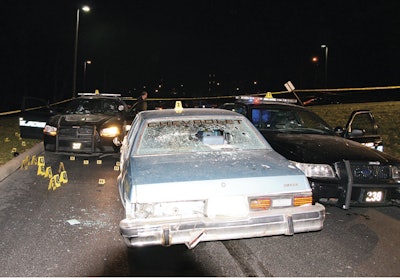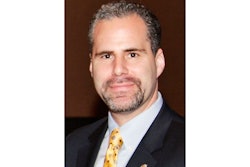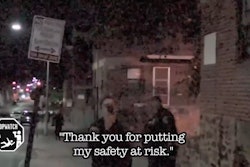 When dealing with a controversial crime scene, an agency may need to call in an independent review team. (Photo: Martinelli and Associates)
When dealing with a controversial crime scene, an agency may need to call in an independent review team. (Photo: Martinelli and Associates)
The "Hands up! Don't shoot!" narrative adopted by protesters following last August's fatal shooting of Michael Brown by Officer Darren Wilson of the Ferguson (Mo.) Police Department ultimately turned out to be a false narrative. However, before the dust had settled and the truth was revealed by a U.S. Department of Justice investigation months later, rioting had laid waste to much of Ferguson's downtown business district and several police officers and scores of protesters had been injured.
The ever-increasing impact of Twitter, YouTube, Facebook, Instagram, irresponsible blogs, and the unending "breaking news" cycle of TV networks with too much time to fill and too little to report have frequently relegated credible investigative reporting to occasional coincidence. This has created a new reporting paradigm of "#journalism," where truth and accuracy have fallen second place to the race to garner immediate "air time." National and international news organizations are now populated by young and inexperienced news producers who appear bent upon getting their news stories out first, rather than getting them out right—or accurately.
The turmoil created by #journalism surrounding police shootings attracts a cadre of self-appointed "community activists." Those activists are soon followed by showboating politicians and pundits eager to get face time in the national spotlight by decrying the involved officers and policing agencies with allegations of racism, racial profiling, false arrest, excessive force, and wrongful death. Today, officer-involved shootings have sadly evolved into "political shootings."
How does a police department that has become the latest focus of the political shooting frenzy react?
As professionals who are involved in the daily task of investigating, analyzing, testifying in, and arguing criminal and civil rights cases predominantly involving officer-involved shootings and in-custody deaths, we are keenly aware that state and municipal entities more often than not lack the investigative, legal, and forensic experience to determine accurate fact patterns. We often see that these entities fail to properly identify important exculpatory and inculpatory circumstances, facts and forensic evidence, and experience difficulty reconciling these same components with the statements of involved officers, defendants, plaintiffs, and witnesses.
Endless Scrutiny
The first thing to recognize is that a political shooting is different from other officer-involved shootings. Very few police agencies are equipped to handle the barrage of media scrutiny, demands for information, interviews, and public records requests generated during a political shooting.
Well-meaning police officials can be excoriated by the media merely because their officers were of a different race than the shooting victim. Politically motivated prosecutors at every level of government will threaten to prosecute the officer, convene a grand jury, or to impose their wills through intrusive "consent decrees." And to the police officers and departments involved, the scrutiny will seem endless.
Law enforcement administrators and officers will quickly discern their goals are very different from those of the news media or the politicians. While media and politicians may want to fill air time or please a political constituency, law enforcement agencies must actively seek the truth. Agencies have to balance the officer's right to privacy, union concerns, the potential for criminal charges, and cooperation with legitimate governmental inquiry such as grand juries. Media and politicians are unconstrained.
Too often, law enforcement agencies try to go it alone. Agencies that investigate their own officer-involved shooting incidents and in-custody deaths stop their investigations once they reach a conclusion that police actions were "legally justified." Often, the local prosecutor's office falls in lockstep with law enforcement in classifying a serious use of force as justified when its investigative input is minimal. But a "justified" shooting does not necessarily mean that all of the actions of the involved officers were objectively reasonable, were not in some way negligent, or were not in violation of a constitutionally protected civil right. Rote determination that a shooting was justified is never going to suffice in a political shooting.
The vast majority of officer-involved shootings are in fact truly justified. In other cases, a "justifiable shooting" simply means that the investigators and the local prosecutor merely determined that probable cause was lacking to charge the involved officer or officers.
In-custody deaths can be another source of political controversy. And while the majority of police in-custody deaths are ultimately forensically determined to have no direct police culpability, others that are investigated by some police agencies and medical examiner offices fall short of being competently investigated because of the investigators' lack of experience in utilizing the types of applied sciences to render credible opinions as to the mechanism of injury and cause of death. Such shortcomings will be exploited by those seeking to make political capital. And they are a good reason to call for assistance.
Asking for Help
Calling in a state or national investigative agency such as the state police or the U.S. Department of Justice may take months to arrange. Once these agencies commence their investigations, it may take several more months to more than a year to resolve. As witnessed in the Ferguson shooting and the New York in-custody "I can't breathe!" death incident, law enforcement and municipal officials generally do a horrible job at press relations.
The inability of some agencies to properly articulate investigative and forensic procedures to a media hungry for answers, compounded by the knowledge that an agency is investigating itself, exacerbates tensions between the community, law enforcement agencies that serve that community, and local governments.
Asking for an independent review conducted by privately retained, highly qualified professionals experienced in law enforcement practices, forensic sciences, law, and medicine—who are beholden to no one—is the answer to this dilemma. The need for a multidisciplinary investigative and forensic approach to manner and cause of death, rather than a myopic, simple determination of criminal culpability in the death of a person killed by police or who died while in police custody, should be obvious to all.
Advocates for the Truth
The benefits of utilizing an outside, private forensic investigations team to investigate major uses of force, officer-involved shootings, and in-custody deaths are many.
First, the loyalty of an outside independent review team (IRT) is to the facts and the forensic evidence, rather than to any governmental body.
Experience has proven that a multidisciplinary investigation approach, where a team of trained and highly experienced experts in criminal investigations, applied sciences, forensics, medicine, and criminal/civil law is utilized is vastly superior to the compartmentalized investigative approach often used by law enforcement agencies dealing with politically controversial deaths.
A forensic team of privately retained experts will not be influenced by local politics, the media, or community activists. For the independent review team, there is no "correct" resolution, only a truthful one. The experts on the team understand and appreciate the case "Is what it is," with all of its warts, weaknesses, and strengths. The independent review team's experts are not afraid of giving "bad news" to one side or the other. Their mission is a fair and accurate search for the truth, no matter what that truth ultimately reveals.
A privately retained independent review team (IRT) should be comprised of vetted professionals who are the most learned, skilled, experienced, and battle-tested experts available in the fields of law enforcement, forensic sciences, medicine, and law. The vast majority of state and municipal governments and law enforcement agencies do not have investigators with the same level of criminal, forensic, and civil expertise because state and local agencies can rarely afford to spend the money and time it takes to build this level of expertise in their investigative staffs.
Also, an IRT can focus on just a few or even one case. In contrast, state and municipal law enforcement investigators are usually working on numerous cases at the same time. This means that a privately retained IRT can devote more time to each case and complete it much sooner and with more accuracy than its state or municipal counterparts.
The use of a team of independent review experts to author forensic reports for release to the media and public is the most transparent and credible way to explain what happened in an event and why. IRT experts are generally more experienced than police investigators and prosecutors' offices in providing a written chronology and accurately reflecting how an incident transpired and the actions of all involved parties. An independent review report documents how the incident was investigated and analyzed, and how facts, circumstances, and forensic evidence were assessed to conclude whether the incident was objectively reasonable.
Unlike reports from a law enforcement agency and prosecutors' office, which only address criminal elements, an independent review report will include a detailed analysis that addresses both criminal and civil aspects. An independent review team's report articulately addresses and thoroughly responds to all pertinent allegations and questions that the media and the community might present in a way that is easy to understand.
Perhaps the most compelling reason to use a privately retained independent review team is for transparency and credibility. As evidenced by today's media and community concerns, and in some cases outrage, regarding how law enforcement investigates its own, retaining an established team of experts with a documented history of excellent and transparent performance immediately allows for an independent, transparent, and unpressured forensic review of high-profile police incidents such as officer-involved shootings and in-custody deaths.
The greatest benefit of an independent review team is also a potential liability. A team that "calls it like it is" may end up discovering weaknesses in training, administrative oversight, or policies and procedures. This is part of the risk of hiring independent investigators. Their independent review report can become a roadmap to a plaintiff's lawyer seeking to impose liability on the agency for failure to train or supervise.
Law enforcement agencies, particularly those in the unyielding spotlight of a political shooting or controversial in-custody death, don't have to go it alone. An independent review team can bring its credibility, experience, and collective wisdom to police agencies and the communities they serve. An independent review team will relentlessly engage in a search for truth, even while the politicians and #journalists sacrifice truth for headlines.
In today's fast-paced, media-intensive, political environment, it is critical that police encounters with citizens resulting in major uses of force, officer-involved shootings, and in-custody deaths be expeditiously investigated by a credible team of highly experienced and fiercely independent professionals whose only goal will be a transparent search for the truth, no matter where the facts, forensic evidence, and truth takes them. The public deserves nothing less.
Ron Martinelli, Ph.D., is a nationally renowned forensic criminologist and law enforcement expert. Dr. Martinelli is a retired law enforcement officer who directs the nation's only multidisciplinary civilian forensic death investigation team, Martinelli & Associates, Justice & Forensic Consultants, Inc. He can be reached at (951) 719-1450 or www.martinelliandassoc.com.
Mark D. Jarmie, Esq., is a trial attorney in private practice who represents police agencies throughout New Mexico. He has served as an assistant U.S. attorney and as director of prosecutions for the New Mexico attorney general. Jarmie has successfully tried dozens of jury trials and has assessed liability for police agencies nationwide through the trial consulting company www.AnotherLook.us.














